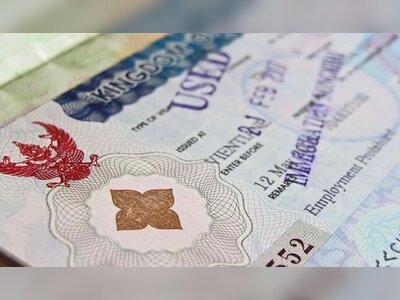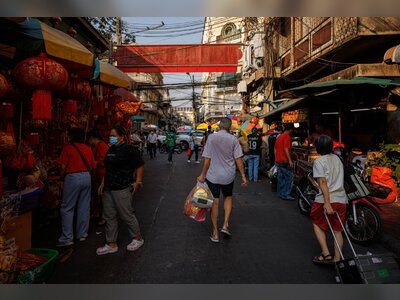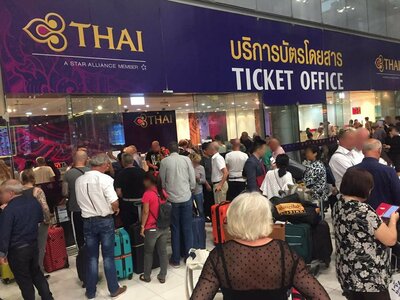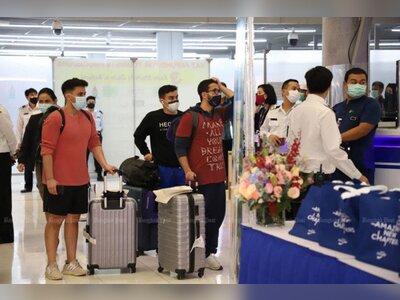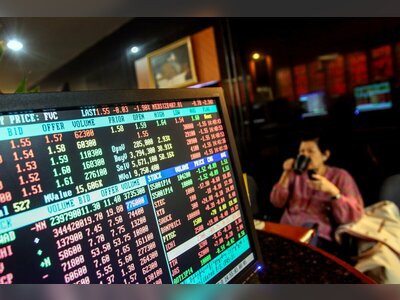Bananas and Cocaine: Unmasking the Caribbean's Emerging Drug Route
A Record Seizure in the Dominican Republic Highlights Growing European Demand and Shifting Trafficking Dynamics
In an unprecedented discovery, authorities in the Dominican Republic uncovered more than nine thousand kilograms of cocaine cleverly concealed within a consignment of bananas at a port in Santo Domingo.
This staggering seizure marks the largest recorded drug haul in the nation's history and casts a fresh spotlight on the Caribbean's reemergence as a pivotal node in the transatlantic drug trade.
The resurgence of this maritime route from South America, primarily originating in Colombia, to Europe reflects not only the surge in European demand for cocaine—a trend underscored by rising use in countries such as the United Kingdom, Belgium, and Spain—but also the evolving strategies of drug cartels.
These criminal enterprises are increasingly exploiting less scrutinized entry points and deploying sophisticated logistical networks to circumvent law enforcement.
However, the factors contributing to this phenomenon extend beyond mere supply and demand dynamics.
The recent uptick in European cocaine consumption is also influenced by socio-economic challenges, including economic uncertainty and mental health crises, which have been exacerbated by the pandemic-induced upheaval.
Such pressures are fueling illicit drug use, with severe public health repercussions.
The United Kingdom, for instance, is grappling with its highest rate of drug-related deaths in three decades, significantly driven by cocaine.
This grim reality raises critical questions about the preparedness of European health systems to address the escalating health crisis linked to drug abuse.
Yet, the battle against cocaine trafficking must also extend beyond health responses.
Concerted global cooperation is crucial in fortifying international law enforcement efforts and enacting robust policy reforms aimed at curbing the trafficking networks.
The recent seizure in Santo Domingo underscores just one aspect of the multifaceted war against global drug trafficking—a conflict deeply interwoven with economic disparities and historical shifts in geopolitical landscapes.
The Caribbean's renewed status as a drug transit hub is emblematic of such shifts, reinforcing the urgent need for an inclusive global strategy.
As Martin Luther King Jr. poignantly stated, 'Whatever affects one directly, affects all indirectly.' This is a stark reminder that drug trafficking is a transnational issue, with ramifications that ripple across borders, demanding a comprehensive, unified international response.
This staggering seizure marks the largest recorded drug haul in the nation's history and casts a fresh spotlight on the Caribbean's reemergence as a pivotal node in the transatlantic drug trade.
The resurgence of this maritime route from South America, primarily originating in Colombia, to Europe reflects not only the surge in European demand for cocaine—a trend underscored by rising use in countries such as the United Kingdom, Belgium, and Spain—but also the evolving strategies of drug cartels.
These criminal enterprises are increasingly exploiting less scrutinized entry points and deploying sophisticated logistical networks to circumvent law enforcement.
However, the factors contributing to this phenomenon extend beyond mere supply and demand dynamics.
The recent uptick in European cocaine consumption is also influenced by socio-economic challenges, including economic uncertainty and mental health crises, which have been exacerbated by the pandemic-induced upheaval.
Such pressures are fueling illicit drug use, with severe public health repercussions.
The United Kingdom, for instance, is grappling with its highest rate of drug-related deaths in three decades, significantly driven by cocaine.
This grim reality raises critical questions about the preparedness of European health systems to address the escalating health crisis linked to drug abuse.
Yet, the battle against cocaine trafficking must also extend beyond health responses.
Concerted global cooperation is crucial in fortifying international law enforcement efforts and enacting robust policy reforms aimed at curbing the trafficking networks.
The recent seizure in Santo Domingo underscores just one aspect of the multifaceted war against global drug trafficking—a conflict deeply interwoven with economic disparities and historical shifts in geopolitical landscapes.
The Caribbean's renewed status as a drug transit hub is emblematic of such shifts, reinforcing the urgent need for an inclusive global strategy.
As Martin Luther King Jr. poignantly stated, 'Whatever affects one directly, affects all indirectly.' This is a stark reminder that drug trafficking is a transnational issue, with ramifications that ripple across borders, demanding a comprehensive, unified international response.


